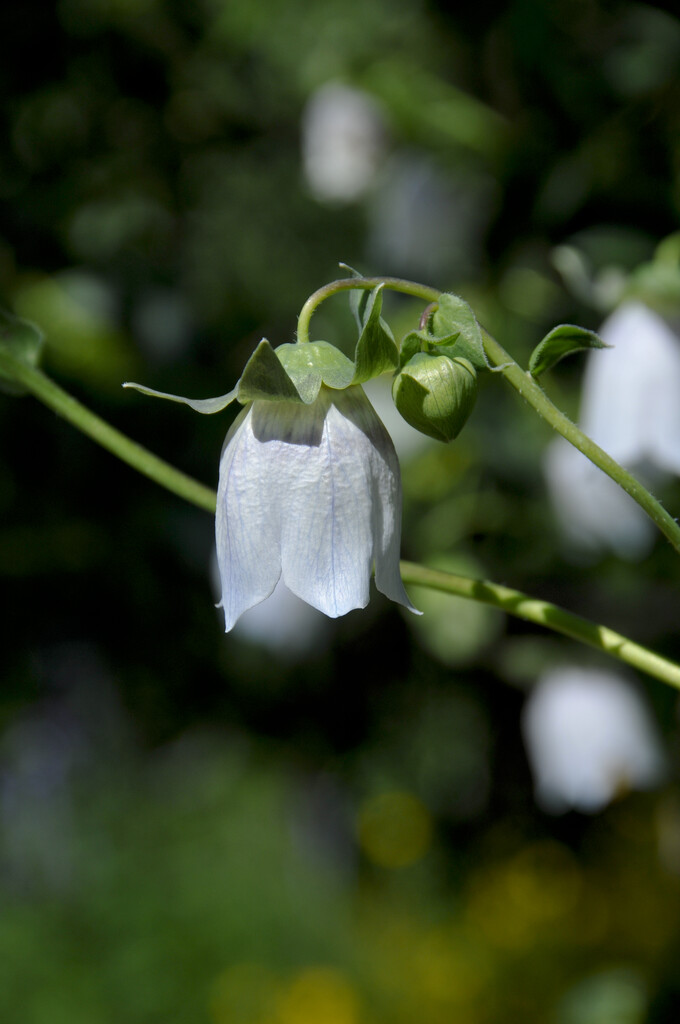Codonopsis clematidea
A twining herbaceous climber to 1.5m high, with slender, branching stems and narrowly ovate grey-green leaves that have an unpleasant scent when crushed. Nodding, bell-shaped, palest blue flowers, with dark purple-blue markings on the insides and a yellow and black central eye, are produced at the tips of the stems in late summer
Size
Ultimate height
1–1.5 metresTime to ultimate height
2–5 yearsUltimate spread
1–1.5 metresGrowing conditions
Moisture
Moist but well–drainedpH
Acid, Alkaline, NeutralColour & scent
| Stem | Flower | Foliage | Fruit | |
| Spring | Green Grey Silver | |||
|---|---|---|---|---|
| Summer | Blue | Green Grey Silver | ||
| Autumn | Green Grey Silver | |||
| Winter |
Position
- Full sun
- Partial shade
Aspect
East–facing or South–facing or West–facing
Exposure
Sheltered Hardiness
H5Botanical details
- Family
- Campanulaceae
- Native to GB / Ireland
- No
- Foliage
- Deciduous
- Habit
- Climbing
- Genus
Codonopsis can be erect and bushy, or twining herbaceous perennials with fleshy or tuberous roots, simple leaves and bell-shaped or star-shaped flowers in summer, often beautifully veined
- Name status
Correct
How to grow
Cultivation
Thrives in light, fertile, moist but well-drained soil in sun or part shade, with shelter from strong winds. Will happily scramble through shrubs to give a second flush of flowers. Plants die back to overwinter as tubers and can be late to emerge in spring, will benefit from a winter mulch in colder regions
Propagation
Propagate by seed sown in containers in a cold frame in autumn
Suggested planting locations and garden types
- Cottage and informal garden
- Climber and wall shrubs
Pruning
Cut back faded stems in late autumn
Pests
Diseases
Generally disease-free
Get involved
The RHS is the UK’s gardening charity, helping people and plants to grow - nurturing a healthier, happier world, one person and one plant at a time.
